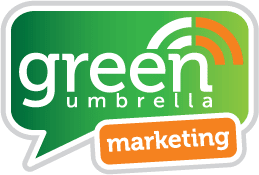2018 – What Did We Learn?

2018 – What Did We Learn?

This year has certainly been a rollercoaster ride for some of the core social networks! As Marketers, we all have our own axes to grind in relation to the happenings of 2018, and there will be stories that will stand out to us individually for various reasons. This article is not a round-up of everything that happened in 2018 – it’s an overview of the happenings within the digital marketing world this year that really stood out for me.
Facebook Apocalypse
The year started with ‘Facebook Apocalypse’. There was panic that Facebook page posts would not be seen in the newsfeed ever again. Although it’s true that Facebook marketers have to be prepared to pay for advertising to guarantee a place in the newsfeed. In reality, the so-called apocalypse really hasn’t hurt us. In fact, we’ve been offered other features which in reality are more valuable than organic newsfeed placements. As a page we can now join Facebook groups and post as our brands, Facebook Jobs have been fully implemented and continue to be improved with various updates, and Facebook is, as we speak, looking at ways to improve bulk messaging for brands too.
At the time, I remember saying that when Facebook takes away in one hand – it gives in the other. Facebook needs to keep its users happy, so promising to improve newsfeed making it more meaningful is a big tick in the box. Facebook also needs to keep its shareholders and investors happy – so page owners are encouraged to invest in advertising. At the same time, if it doesn’t keep us page owners and marketers happy (especially those without an advertising budget), we won’t be present on the platform, and their revenue stream of the future is cut off.
Cambridge Analytica
In the first quarter of the year, the Cambridge Analytica scandal broke. This made several people incredibly wary of Facebook, which at first I saw as a negative. However, I think that there has been a positive impact of more considered usage of the platform. Generally speaking, Facebook users now understand they are being served adverts and understand the reasons why. They are more careful about what they share in terms of personal information – which is definitely a good thing in my opinion.
The fall out from not only Facebook’s perspective, but also all social media platforms is an overhaul of internal (for want of a better word) ‘governance’ of what is happening on their platforms in regard of Political canvassing and sharing of content that is intended to sway public opinion. I won’t go into the various changes, but it is all positive. Looking forward, there is a need for a more organised form of governance in terms of social media, but for now, we should all rest assured that these platforms are taking action and making transparency a priority.
GDPR
I sorry but I do have to mention GDPR here. It came, it happened, and you/we all survived it. I do think GDPR for most businesses is one of those things that was far more of a headache than it needed to be. There was a lot of confusion over the regulations, and with so many ‘experts’ popping up left right and centre offering different advice it was no wonder that we received as many panic phone calls as we did. After the 25th May 2018, those businesses who did read the guidance issued by the ICO and took relevant actions are sitting back comfortably knowing they’re compliant. Wondering what all the fuss was about. We’re still stuck in a little bit of limbo in some areas until we have seen some case law, once that happens we may see the need for some tweaks to our current GDPR policies but for now – we can relax.
RIP G+
Google plus officially died – but let’s admit it, it had been dead to us for a while!
I was trying to think of an analogy for Google and its efforts in regard to social media. This is the best I could come up with – it is like the kid at school that wanted to be cool but just tried too hard and so never made it.
Google has a history of failure when it comes to social – and although outside of the UK Google plus did gain users and some traction, it just never cut the mustard. I am fearful that Google will ruin some of its other apps (i.e. Google Maps) by trying to introduce unnecessary (read that as ‘annoying’) features that are G+ hangovers – but we’ll see. It took a long time for Google to finally admit failure publicly, and the pressure of admitting data breach after data breach forced them into coming clean. Hopefully, their experiences will make them think twice as they roll out functionality to other Google products.
Influencer Marketing
I remember debating the pros and cons of celebrity endorsement 10 years ago. Today it isn’t about celebrity; it’s about anyone with a following – whether they exist within a specific niche or not. We cannot ignore the fact that Influencer marketing not only took hold this year – it is on the rise.
Using influencer marketing tactics in marketing has become more commonplace and is, in reality, actually very accessible. Using the right tags on Instagram means we can get the attention of the pseudo-celeb we’re after. Engage in conversation and have them make sure our products are in shot during the next YouTube video that will be watched by 100,000’s of their followers.
In my opinion, e-commerce brands really need to think about Influencer marketing as the ultimate growth hacking tool. Just be aware of the risks of associating your brand with someone in the public eye – whatever their level of stardom there are potential risks.
Watch & IGTV
Watch and IGTV launched – I was actually really very excited about this. The promise of what was to come piqued my interest. This could be awesome for so many of my clients. But – it arrived, and after the first glance, I haven’t touched it, and I don’t think many other people have either!
Reading industry news, I’m not surprised to find take up of both Facebook’s Watch and Instagram’s IGTV has been limited. In fact, it has been reported that Facebook is now looking to gather content that is targeted at the female 50+ audience in an attempt to drive usage of Watch. (On a slightly unrelated note – It’s worth noting that despite reports otherwise this year, the female 50+ demographic is still a key sector of Facebook’s user base).
That’s not all – but it’s enough for now
So that’s a December 2018 round-up of what interested me this year, these topics had me avidly reading updates and actually talking to people offline and confidently voicing my opinion. If you were one of those people I bored with any of the above I would apologise and promise to discuss more exciting topics next year – I’d guarantee 2019 is going to bring us another rollercoaster ride of updates for me to get my teeth into!

Christina Robinson is the Managing Director of Green Umbrella Marketing. She provides Social Media Training and Coaching for a range of clients throughout the UK.
Share this!

